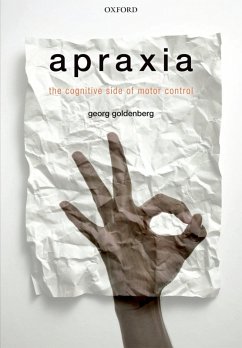Apraxia is a symptom of cerebral lesions that has puzzled clinicians and researchers for some 100 years. It has engendered many fascinating descriptions and a wide diversity of conflicting theoretical accounts. This book is the first one that gives a comprehensive account of clinical and experimental findings on all manifestations of apraxia as well as of the history and the philosophical underpinning of theories on apraxia. The review of contemporary evidence is illustrated with vivid descriptions of clinical examples. The historical part reveals early precursors of the concept of apraxia in the last third of 19th century and resuscitates contributions made in the "holistic" era in the mid-20th century that have now largely fallen in oblivion. They show that the richness of ideas on apraxia is much greater than some modern authors would acknowledge. Over and beyond giving an overview of history and clinical appearance of apraxia the book explores the philosophical fundaments that underlie definitions, classifications, and theories of apraxia. Goldenberg argues that they are ultimately grounded in a mind versus body dichotomy that appears as opposition between high and low or, respectively, cognitive and motor levels of action control. By relating history and modern evidence to perennial philosophical problems the book transgresses the topic of apraxia and touches the fundaments of cognitive neuroscience. This book will make fascinating reading for those in the fields of neuroscience, neurology, neuropsychology, and developmental psychology
Dieser Download kann aus rechtlichen Gründen nur mit Rechnungsadresse in A, B, BG, CY, CZ, D, DK, EW, E, FIN, F, GR, HR, H, IRL, I, LT, L, LR, M, NL, PL, P, R, S, SLO, SK ausgeliefert werden.









